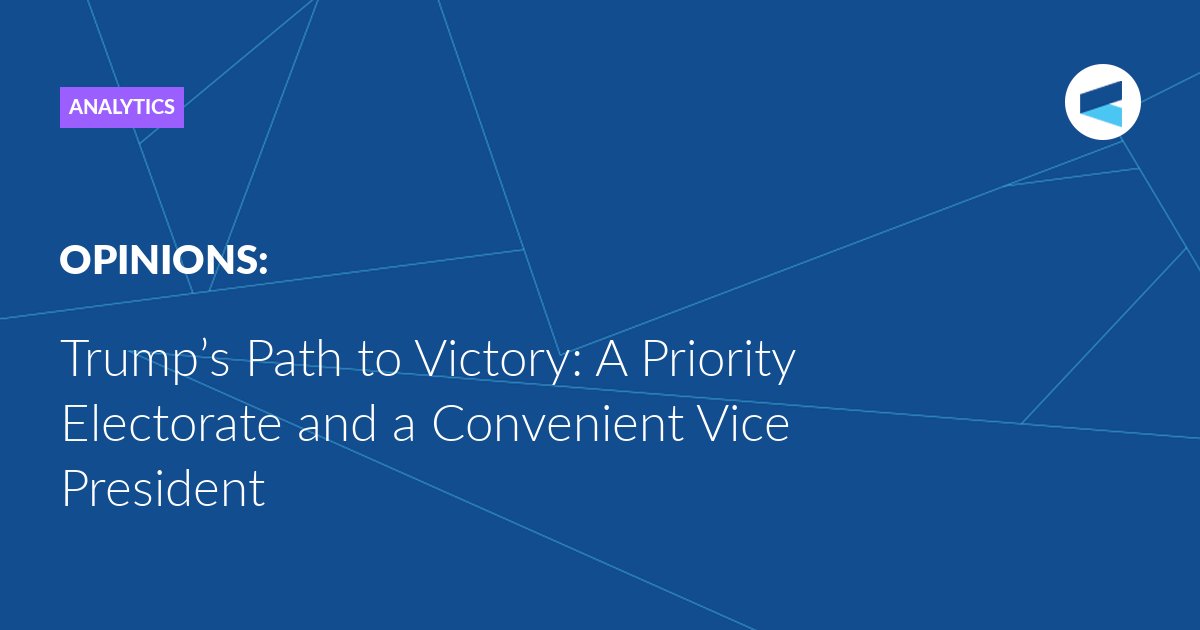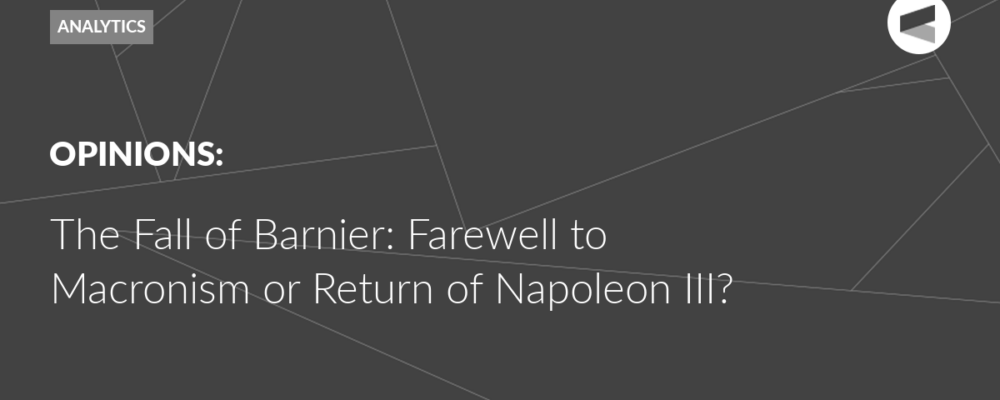Competition of candidates
It is worth clarifying that for Trump, issues of loyalty are extremely important and this feature will influence his choice of vice president along with the real strategic advantages of one of the candidates.
Marjorie Taylor-Green, Mat Goetz, Byron Donalds
All three are close to Trump ideologically, but do not appeal to the political centre and are even losing popularity in their own states. Trump already has an anti-rating (it is not his personal popularity that is growing, but distrust of Biden), so he has no need to carry the ballast of three legislators with no real experience in civil service, who are not particularly popular among a significant portion of US citizens. He could choose one of them, like Donalds, but that choice not only does not provide the former president with a strategic advantage, but may even harm his chances among independent voters and women in the suburbs.
Elise Stefanik
Elise Stefanik heads the Republican Conference and has already stated that if such an offer is received from Trump, she will gladly agree to be his vice president. One of Stefanik’s tangible advantages may be the support of the party apparatus, but here, too, she cannot offer Trump anything fundamentally new. The former president practically leads the Republican Party, anyway.
At the same time, Stefanik represents the 21st district of New York in the House (the state has been won by Democratic presidential candidates since 1988; since 1986, it has also been represented exclusively by Democrats in the Senate; since 2006, only Democrats have won in gubernatorial elections). In 2020, Biden beat Trump in this district by a margin of nearly 23%. In 2022 Stefanik won over an opponent from the Democratic Party with an advantage of almost 20% (with 59.2% to 40.8%). That is, she is experienced in terms of fighting for votes in predominantly Democratic states and, hypothetically, could be useful in fighting for the support of independents.
But her candidacy has other advantages that may seem more important to Trump than her ability to attract votes. As the third-ranking Republican in the House of Representatives, Stefanik has played a key role in purging the party of anti-Trumpists. In one of the interviews, she even stated that she would not have done what former US Vice President Mike Pence did on January 6, 2021 (certifying Biden’s victory in the 2020 presidential election).
At the same time, such statements may reduce her chances among independent voters at the national level.
Sarah Sanders
Arkansas Governor Sarah Huckabee Sanders is close to Trump. From 2017 to 2019 she was his press secretary and did not abandon him after the storming of the Capitol on January 6, 2021. The former president did not forget her loyalty and in 2022 helped her win the Republican primaries and gubernatorial elections in Arkansas.
Sanders, like Stefanik, boasts a successful track record fighting for the votes of independent voters. But since she represents one of the most conservative states, the specifics of independent voters there are different than at the national level: in Arkansas they are more conservative, but in the United States as a whole, they are moderate and belong to the political centre.
It is also unclear whether she will agree to run with Trump. She is currently serving her first term as governor, which expires in 2027.
Ron DeSantis, Tim Scott
A nominee’s former opponents often became his protégés on the path to the White House. Bush Sr. was once one of Ronald Reagan’s main competitors for the party’s nomination. Current President Joe Biden took Kamala Harris as his vice president, who, as a participant in the Democratic primaries, was, if not the strongest, then one of the loudest critics of the current president. Biden himself competed, albeit briefly, with Obama for the Democratic nomination in 2008 before becoming his vice president. Therefore, it is possible that the pool of candidates that Trump will consider for his running mate will be limited to his former rivals.
Ron DeSantis has been trying to make himself out to be a preacher of Trumpism “with a human face” for almost a year. The rationale was simple: “Trump’s ideas are good, but he can’t win, I can.” Based on the former president’s personal characteristics, this alone is enough to cross DeSantis off the list of potential candidates for vice presidency. In addition, it is not certain that DeSantis himself wants to run on a ticket with Trump, especially when he has the opportunity to serve out a term as governor in Florida and run in 2028 as an independent candidate.
It’s also important to remember that in DeSantis’s mind, what distinguished him from Trump was his ability to win. He literally boasted at every corner about his “historic” result during the gubernatorial elections in Florida in 2022. DeSantis hardly wants to risk losing with Trump in 2024. Unlike other candidates, he can afford to risk being left out in the cold if the former president wins.
In addition, it is possible that DeSantis plans to run for presidency in 2028. Given the limited powers of the vice president, the governorship in Florida could allow him to build a stronger “portfolio” to attract voters in four years.
Tim Scott, in turn, does not directly talk about vice-presidential ambitions. His actions, however, do it for him. A public declaration of love for Trump, speaking in his defence on various TV shows – all this is a signal to the former president. In addition, after Scott pulled out of the race, he announced his engagement. At first glance, this is an event from his personal life, but it fully corresponds to the goals of the election campaign. Since Trump positions himself as a fighter for conservative values, then his vice president (and therefore potential successor) cannot be a single man. Also, don’t forget that Tim Scott is popular among evangelical voters, for whom family values have both political and spiritual value. But, again, Trump has no problems with this particular electorate. It’s hard to say how popular Scott is among independents and black voters. He did not have time to “light up” during the primaries. However, ostentatious loyalty to Trump may work to Scott’s advantage.
Nikki Haley
Haley’s main advantage is her popularity among independent voters. While the ability of other contenders to attract this group is anyone’s guess, numerous polls and past primaries and caucuses have shown that Haley is succeeding. For example, in New Hampshire she received the support of 58% of local voters registered as independents and 71% of voters who identify themselves as moderate.
There is also a nuance that limits the significance of these indicators. Haley’s support stems less from her personal popularity than from these voters’ reluctance to vote for Trump. It turns out that a significant part of Haley’s current “base” may not vote for her if she runs with Donald Trump. Surveys confirm this.
NBC News, the Des Moines Register and Mediacom conducted a poll between Jan. 7 and Jan. 12, which revealed that 43% of Haley supporters in Iowa said they would vote for Biden if Trump became the Republican nominee. 23% admitted that they would give preference to the former president.
Thus, Haley’s advantage among independents and moderates in the primaries may be limited in the national vote. Still, given Biden and Trump’s nearly equal chances of winning, even Haley’s relative advantage among a key group of voters could help Trump win the election.
But Haley is vulnerable not only because she refused to drop out of the race for the nomination after losses in Iowa and New Hampshire, but also because of her tough rhetoric against Trump. For him, this may be a decisive argument to refuse her candidacy
Kristi Noem and Vivek Ramaswamy
Former Republican contender Vivek Ramaswamy and South Dakota Governor Kristi Noem were both ranked as the most desirable vice-presidential candidates in a CPAC poll (both at 15%).
Ramaswamy is closest to Trump rhetorically and ideologically. However, he does not appeal to any important electoral groups or demographics. During his participation in the primaries, his rating failed to reach even 10%. A strong performance at the debate could resonate with the ultra-conservative electorate, but the former president already has their support in his pocket. Based on this, Vivek looks quite active and cheerful, but from the point of view of electoral gain – a useless addition to Trump.
Kristi Noem represents South Dakota, a solidly Republican state. Since 1940, the United States has held presidential elections 21 times. The only Democratic candidate to win in the state was Lyndon Johnson in 1964. Since 1978, only Republicans have won gubernatorial elections there. In congressional elections (especially in the US Senate), Democrats had more success, but since the mid-2010s. Republicans dominate at this level as well. According to the Secretary of State’s website, as of February 1, 2024, there are 300,964 Republicans, 145,518 Democrats, and 87,916 Independents. In other words, this is a solidly Republican state, so it’s hard to gauge how much Noem’s candidacy will boost Trump’s popularity among the key electorate of independents.
Tulsi Gabbard
The news that Trump is considering Gabbard is a surprise (although it is not very clear how sincere he was when he confirmed it). This isn’t only because she’s a Democratic congresswoman who sought her party’s nomination in 2020. From 2013 to 2016, Gabbard served as vice chair of the Democratic National Committee. Despite poor results during the 2020 Democratic primaries, Gabbard managed to attract the spotlight. It was not so much about her achievements or the characteristics of her biography, but rather about the criticism brought down on Gabbard by party mastodons. Hillary Clinton almost directly called Gabbard a protégé of Russia. In 2020, she said that Moscow was allegedly “looking closely” at Gabbard as a possible third candidate who could pull votes away from Biden and thus guarantee a second term for Trump. Despite the fact that the former secretary of state did not provide any evidence, the mainstream media began to actively discuss these speculations.
Gabbard’s foreign policy views largely coincide with those expressed by Trump himself in 2015-2016. She is against US military intervention in the affairs of other countries. In particular, at one time she opposed Washington’s attempts to remove Bashar al-Assad from power. As for Russia, Gabbard insists on the need to develop relations, first of all, through dialogue. Among other things, she opposed the unilateral withdrawal of the United States from the INF Treaty in 2019. But at the same time, in 2014, she actively supported sanctions against Moscow and even considered the measures taken by then US President Barack Obama as insufficient.
In 2022, she left the Democratic Party and officially registered as an independent. On February 22, she spoke at the CPAC annual conservative forum, where she praised Trump for continuing to fight the elites. She also recalled her friendship with Biden and said he simply could not handle the pressure of serving as president. Apparently, she accepted Trump’s invitation to compete for the vice presidency.
Gabbard can attract the votes of women in the suburbs. Her views are not alien to a significant portion of moderate and independent voters. In addition, she not only has a fairly serious political background, but also a military one. In 2004, she was sent to Iraq, where she served until 2005. Later, from 2008 to 2009, she served in Kuwait. Candidates with military experience often have a handicap in US elections. Thus, during the 2022 midterm elections, 197 candidates who previously served in the US Armed Forces ran for the Senate and House of Representatives. Of these, 85 (43%) won elections in their states and districts.
In addition, the choice of an independent candidate (not a member of either of the two major parties) as vice president could resonate in the minds of voters who are ready to give preference to someone who isn’t a Democrat or a Republican.
Conclusion
Despite Trump’s apparent superiority over Biden, the ex-president will have a difficult time winning in November. Republicans and their electorate are divided, criminal proceedings against Trump, the energisation of the Democratic electorate, and various “black swans” (given the age of the two main candidates) are all limiting Trump’s polling gains in swing states. As in 2020, the gap in the number of votes may be less than 5 percentage points. Suffice it to remember that in the five states that Trump won in 2016 but lost in 2020 (Arizona, Wisconsin, Georgia, Michigan, Pennsylvania), the average margin in the last election was 1.02% of the vote in favour of Biden.
Thus, several thousand voters will decide the outcome of the election. Trump may well lose by 3 to 5 million in the overall popular vote, but it is important for him to win not by numbers, but by location, and in this regard, independents will play a key role. To attract the latter, as practice shows, relying on party members or ideological candidates isn’t sufficient. By 2020, Trump himself had managed to “scare off” a significant number of the moderate and undecided voters who gave him their vote in 2016. He did this in order to maintain and strengthen control over the “core” electorate. This bore fruit – the Republican Party nomination is in his pocket. But these same voters will not be enough to win national elections, so Trump needs someone who will appeal not to the extreme corners of the political spectrum, but exclusively the centre.
The Valdai Discussion Club was established in 2004. It is named after Lake Valdai, which is located close to Veliky Novgorod, where the Club’s first meeting took place.
Please visit the firm link to site






